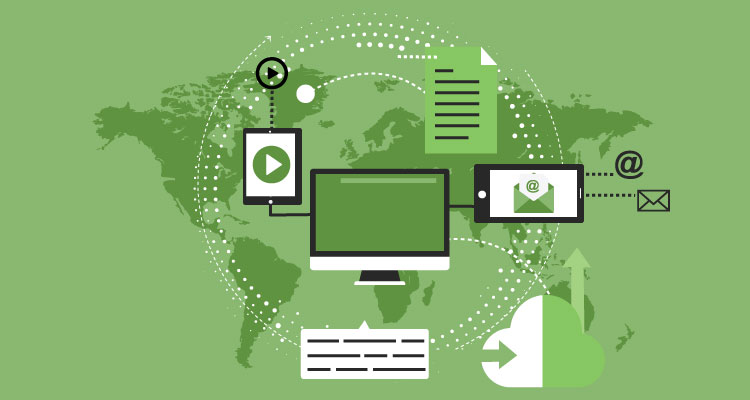Smartphones today can be used for just about anything — this includes making payments. You store all types of payment information on your phone. With Apple Pay and Android Pay, you can make safer mobile payments wherever and whenever a merchant has the capability.
To complete a mobile payment, one can hold their phone near the point-of-sale terminal which reads your payment information. All this mobile payment technology makes it easier for the customer and the merchants to make payments that much simpler.
In many ways, mobile payments are safer – it’s much harder for hackers to get into your data in a breach. This is because your actual financial information isn’t transferred in a transaction.
Instead it uses a coded version of your credit or debit card information when authorizing a payment. Even using all these fancy security features, there are still things to consider to make sure your information is as safe as possible. Here are seven tips to consider when using mobile payments.
Table of Contents
ToggleOnly use a safe, trusted payment platform.
If you make the decision to add your personal payment information, use the software that came with your phone. If you are not going to use these options, use other trusted payment providers like Chase Pay or Google Wallet. These more reputable payment platforms do not store your real credit or debit card details.
Less trustworthy and fraudulent mobile payment apps don’t operate as safely — they actually work the opposite. Hackers can create These apps with the intent of gathering your personal payment information.
Use extreme caution when using third-party mobile payment apps from the app store or the internet. If you are going to download these apps, make sure you do proper due diligence on the platform before uploading any personal information.
Download only trustworthy apps.
Make sure you have your payment information stored in trustworthy apps. It is important also to be cautious about apps that you download to your phone in general. There are apps in the marketplace that contain spyware or malware. These apps are designed to capture your payment information. They send valuable information to hackers without you ever even knowing this has happened.
Lock your phone remotely if it’s lost or stolen.
It’s more important than ever to make sure you act quickly when your phone is lost or stolen. Don’t leave anything to chance when your payment information is accessible on your phone.
You can easily use Android Device Manager to lock or locate a lost or stolen cell phone by going to android.com/devicemanager. For a Windows device, go to windowsphone.com. An iPhone can do the same by logging onto your iCloud on another apple device or by going to iCloud.com.
Use strong password protection.
When you use a password or PIN to protect your phone, be wary of “shoulder-surfing,” where a criminal looks over your shoulder to watch you input your password.
Any payment information on your phone, it is crucial to have it protected by a passcode. If your phone has no security, a thief can swiftly and easily access anything on your phone. This includes storing all your personal financial information on your device.
You will want to have a secure password. This means you need something stronger than “0000.” Don’t ignore other new features and updates when it comes to security on your phone as well. Fingerprints and even facial recognition on some newer phones can make your phone more secure than just a passcode.
Don’t send sensitive information through public wi-fi.
Public wi-fi can be great when surfing the internet, but might not the best for sending sensitive information. Any information that you send through public wi-fi is accessible to anyone who can access that wi-fi.
Somebody who has the know-how can intercept your payment information when you use your phone to make a purchase. If you are going to be making a purchase or sending personal information, it is much safer to use your home wifi. If you are on the go, it is safer to use your mobile carrier’s network than using public wi-fi
Safer Mobile Payments Use a credit card, not a debit card.
To protect yourself it is safer to use a credit card than a debit card. Credit card companies have significantly better fraud protection than debit cards. If your credit card has a zero fraud liability policy that eliminates your risk for any fraudulent charges made to your account.
Debit cards are different on the other hand. You have the possibility to be liable for any money taken from your bank account. On top of that even if your bank does return the money it can take some time for them to sort it out. In the chance that a person does get into your information, with a credit card you won’t be liable for that. With a debt card you will be liable.
Monitor your credit card account.
It is always important to check your transactions as often as possible. Use all the safety precautions necessary to keep a close watch on the movement of money through your account.
Closely watching your account will help you quickly see any time there is suspicious activity happening in your account. This allows you to be able to report charges to your credit or debit card provider. This gives you the ability to quickly receive new cards and a new account number and avoid any more fraudulent charges. Report strange activity is a protection against being liable for the payments.
As the mobile payments space continues to grow mobile fraud grows as well. Taking these steps makes it that much harder for your personal information to get out into the world. Although there is no sure fire way to protect yourself online completely, these seven tips are sure to keep your personal payment information safer!













